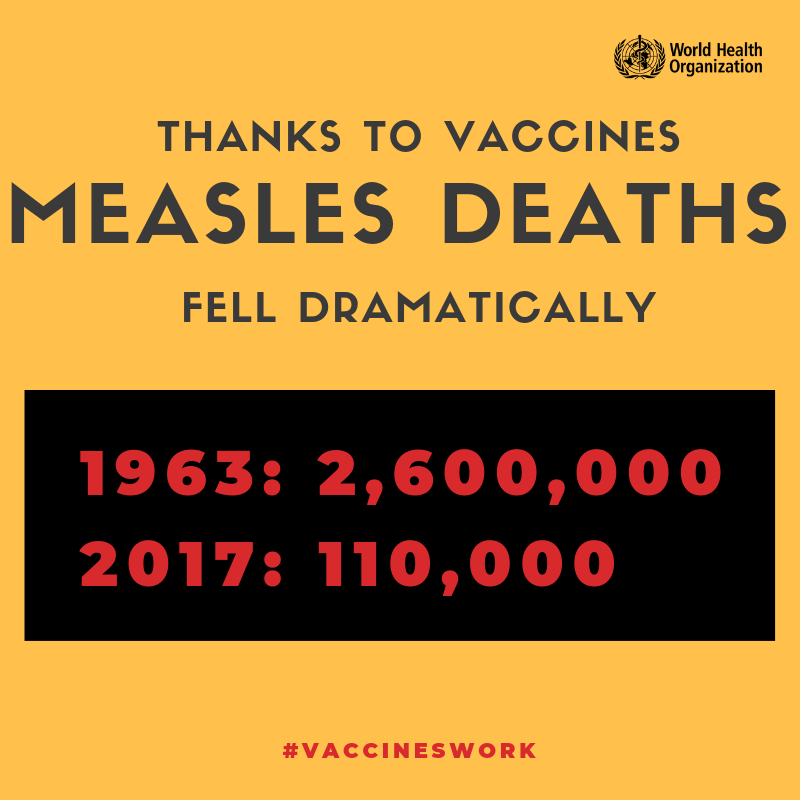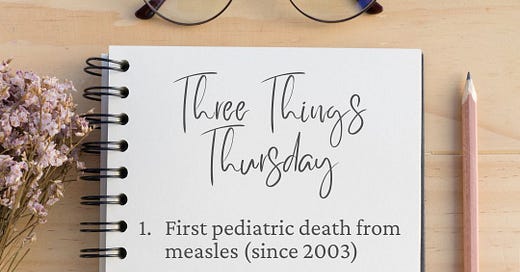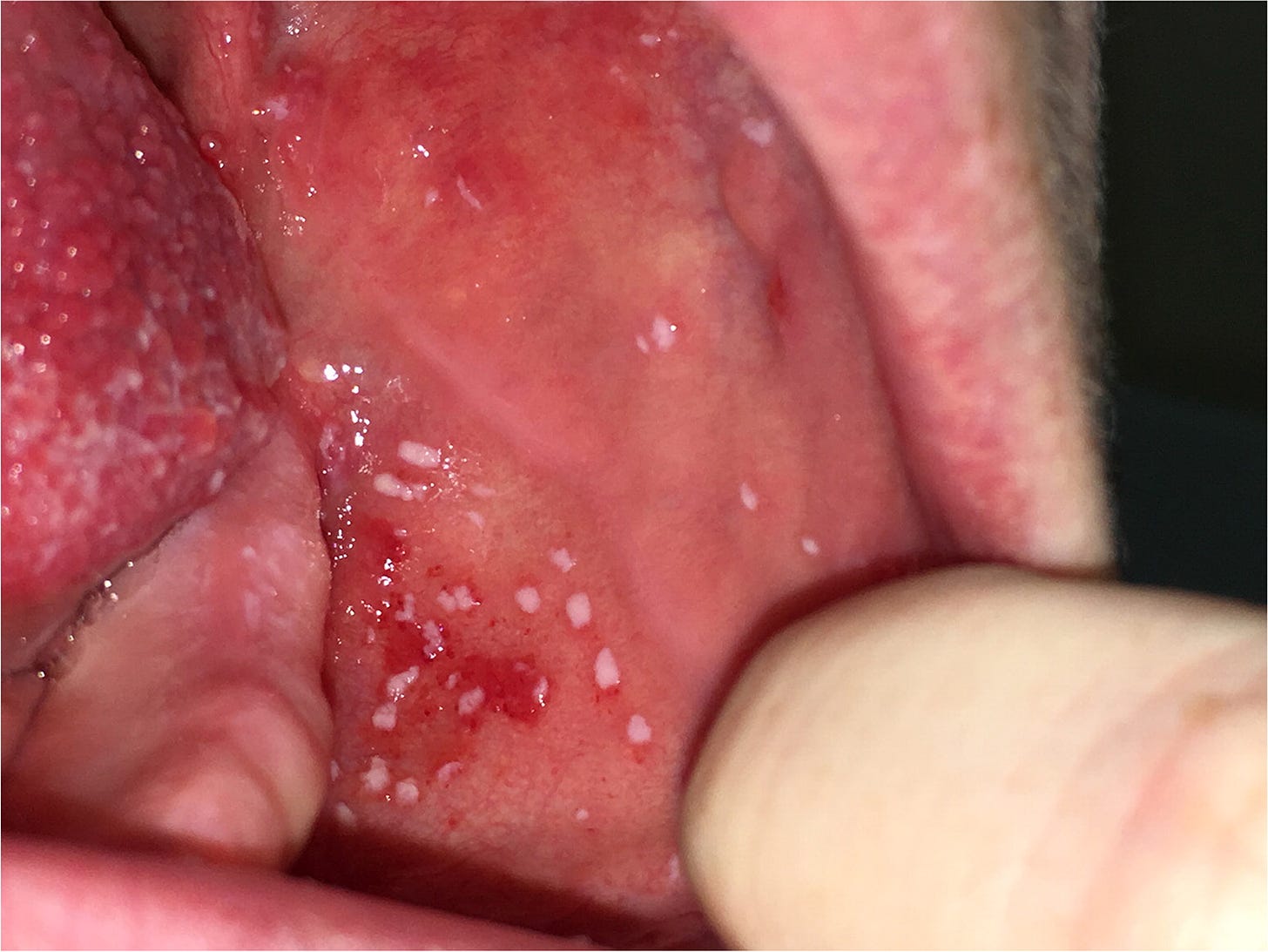Three Things Thursday highlights three things I am paying attention to as an epidemiologist each week. Once again (like it has been for the past two months) it has been a banner week for health news. The CDC trackers for respiratory diseases were updated on February 15 (which is encouraging). The rate of influenza is still VERY high in the United States. All indicators, including wastewater, show that COVID is decreasing (or remaining low) across the country. The norovirus tracker (NoroSTAT) has not been updated since the beginning of February.
This week’s news centers around the Texas measles outbreak and how the Trump Administration is handling/not handling H5N1 and NOT preparing for next year’s influenza season.
A child has died of measles in Texas, the first pediatric measles death in the US since 2003. Secretary Kennedy has downplayed the measles death saying that such outbreaks are “a commonplace event.” He also incorrectly said that the 18 hospitalized patients were being kept "mainly for quarantine" reasons.
THIS IS NOT TRUE.
These kids are hospitalized because they are severely sick.
Additionally, the FDA (under Kennedy’s leadership) canceled its vaccine advisory committee (without explanation). This was the meeting committee members were to discuss and vote on the make-up of next year’s influenza vaccine.
And while the White House is touting its investment of $1 billion to fight H5N1 in poultry, this investment is economic (to reduce the price of eggs). To prevent a H5N1 epidemic, we need to do more than worry about egg prices. We need a comprehensive public health plan that includes monitoring the disease in poultry, wild birds, dairy cows, and people, among other things (like investments in personal protective equipment and research into vaccines, rapid tests, and treatments for H5N1 infections.
We are facing some really big public health problems.
Taylor Swift’s song Bad Blood has been on repeat in my mind…
“Now we got problems
And I don't think we can solve 'em
You made a really deep cut
And, baby, now we got bad blood…Did you think we'd be fine?
Still got scars on my back from your knife
So don't think it's in the past
These kind of wounds, they last and they last
Now did you think it all through?Band-aids don't fix bullet holes
You say sorry just for show…Now we got problems
And I don't think we can solve 'em
You made a really deep cut
And, baby, now we got bad blood…”
Hoping this post helps to educate and empower you
to be healthy and create healthy communities.
Child in Texas Dies from Measles
The measles outbreak in Texas has increased to 124 cases. And on Wednesday, the Texas Department of State Health Services announced that an unvaccinated, school-aged child has died from the disease. The patient was hospitalized in Lubbock. Currently 18 other children in Texas are hospitalized with severe symptoms, including pneumonia and swelling of the brain, associated with measles.
Measles is HIGHLY contagious.
In addition to the outbreak in Texas, there are new cases in Kentucky and Los Angeles/Orange County.
MISINFORMATION and RUMORS are spreading that the outbreak in Texas was caused by the MMR (measles, mumps, and rubella) vaccine. Seriously — people are saying that the vaccine is to blame for the outbreak, even though the vast majority of those who are sick and hospitalized with measles are unvaccinated.
I want to be VERY clear — the MMR vaccine is considered a live vaccine, meaning the vaccine contains a weakened form of a live virus. However, this type of vaccine is safe and (extremely) effective. A review of 773 peer-reviewed research studies found that there is —
“no evidence of human-to-human transmission of the measles vaccine virus has been reported amongst the thousands of clinical samples genotyped during outbreaks or endemic transmission and individual case studies worldwide.”
Measles is an acute (a sudden and you only get it once) respiratory virus. It is a single-stranded, enveloped RNA virus. Typically RNA viruses mutate/evolve/change a lot; however, the measles virus has NOT changed throughout history (seriously, the same virus existed in 3000 BCE). The reason the virus hasn’t changed is that it has a low antigen density, meaning that only a few viral particles enter our cells (to cause illness). Because of this low density, our immune system takes longer to recognize the virus as a pathogen/hazard.
If an unvaccinated individual or someone who has never had measles is exposed to the measles virus, they will likely get sick. Exposure occurs through droplets (like when someone sneezes) and the air. Measles is crazy-wicked stable in the environment. Imagine I walk into the local grocery store and I have measles — I will be contagious 3-5 days before symptoms occur. Every time I breathe out, I will be releasing viral particles into the environment. And those viral particles can float around in the air for 2 hours (yes, 120 minutes) and remain infectious. So if I am there at 10 am and you walk in at 11 — we may not see each other in the store, but my measles virus particles are there and they can cause you to get sick. Similarly, if I sneeze in the produce section, the viral particles in my sneeze juices/droplets can survive on the surface of (say) an apple for up to 2 hours. So you could take my virus home with you on that apple and infect your family.
This virus is so so so contagious!
Symptoms of measles include a high fever (as high as 105*), cough, runny nose (also known as coryza), red & juicy eyes (also known as conjunctivitis), and Koplik spots.
Measles is among the leading causes of childhood morbidity and mortality worldwide.
About 1 in 1000 measles cases will develop acute encephalitis (swelling of the brain), which often results in permanent brain damage or deafness.
One to three in 1000 measles cases will die from respiratory or neurological complications.
Measles is a disease that we need to prevent. And thankfully, we have had a safe and effective vaccine since 1963.

The measles vaccine is safe and effective.
Many people are asking if a booster vaccine is needed —
For most of us, the answer is NO, a booster vaccination is NOT needed.
However, if you were born after 1957 and vaccinated before 1968, you probably should consider getting a booster dose of the MMR vaccine. The early version of the measles vaccine was not a live virus vaccine (we call this an inactivated or killed virus vaccine), and it was not particularly effective.
$1 Billion Investment to Protect Poultry from H5N1
The federal government has invested $1 billion to slow/stop the spread of H5N1 in poultry and increase imports of eggs — “in an effort to drive down high prices,” according to Agriculture Secretary Brooke Rollins.
The money will provide biosecurity audits to farms (aimed at decreasing the spread of H5N1 from wild birds to poultry) and increase payment rates to farmers who need to kill their chickens because of H5N1.
USDA is also thinking about vaccinating chickens, which is great from a public health standpoint but may have trade implications.
While I am all for seeing the price of eggs decrease (prices have doubled since last year), to prevent H5N1 from spreading and potentially causing the next pandemic, we cannot focus solely on poultry. Currently 973 herds of dairy cows across 17 states have been infected with H5N1. And of the 70 human cases of H5N1, more than half of them have occurred among individuals working on dairy farms (the disease spread from cow to human).
The concern is that H5N1 could become endemic — or constantly present — in dairy cows. And because of the close contact between cows and dairy farm workers, the odds of the virus jumping species and evolving to spread from person to person increases.
What is needed is a comprehensive public health surveillance and research program. Yes, the poultry farms need $1 billion to prevent further spread of H5N1. Funds are also needed to slow the spread of H5N1 on dairy farms. We need vaccines — for poultry, cows, and people. We need personal protective equipment, rapid tests, and treatment options.
These preventative measures need to be developed NOW while we are NOT in a state of emergency. We need to be prepared NOW. We need to do the work to slow the spread of disease now. As they say “An ounce of prevention is worth a pound of cure.”
FDA Cancels Vaccine Advisory Meeting
Last week, Secretary Kennedy canceled the February meeting of CDC’s Advisory Committee on Immunization Practices (ACIP). This week, FDA announced that it was canceling (with no explanation) the March meeting of its vaccine advisory committee. Each year, the Vaccines and Related Biological Products Advisory Committee (VRBPAC), FDA’s vaccine advisory group, meets to select the flu strains to be included in the upcoming influenza vaccine.
The public health and medical communities are seeking answers to BIG questions, such as “who will determine what strains of influenza are included in next year’s vaccine?” And some, myself included, are wondering, “will an influenza vaccine be available in the fall?”
The 2024-25 influenza season has been one of the most brutal in recent history. More than 910,000 Americans have been hospitalized with the flu since October. The thought of beginning the 2025-26 respiratory virus season without a flu vaccine (and maybe not a COVID vaccine… what about RSV?) keeps me up at night.
Seriously — this is the nightmare situation.
To add insult to injury, CNBC is reporting that Secretary Kennedy said “he will review the childhood vaccine schedule despite earlier pledges not to do so. He promised that a new ‘Make America Healthy Again’ commission would investigate vaccines, pesticides and antidepressants to see if they have contributed to a rise of chronic illness in the U.S.”
And yesterday Bloomberg reported that the Trump Administration is thinking about pulling funding for Moderna’s H5N1 vaccine.
I am not joking when I say — “An ounce of prevention is worth a pound of cure.”
When we prevent disease from occurring, we save money and lives.
“We’ve got some really big problems. And I don't think we can solve 'em” (easily).
But as Will McAvoy, from The Newsroom, taught us all (in episode 1, season 1) —
“The first step in solving any problem is recognizing there is one.”
Please do not forget to —
Click the “Like” button on the posts you enjoy. It’s a small thing, but it helps.
Share posts, either on social media or with your friends and family.
And stay in touch — what questions do you have? what information do you need? concerns are keeping you awake? Let me know and we can discuss them together.
Epi(demiology) Matters is written by Dr. Becky Dawson, PhD MPH — an epidemiologist, teacher, mom, wife, and dedicated yogi. She is a tenured professor at Allegheny College, Research Director at a community hospital, and an exclusive contributor (all things health & medicine) at Erie News Now (NBC/CBS). Her goal is to create healthy communities for all. She writes Epi Matters — first & foremost because epidemiology does matter (to all of us) and she hopes that each post will help to educate and empower readers to be healthy and create healthy communities.
Be sure you and your friends and family are subscribed so you don’t miss a post —
Epi(demiology) Matters is free — because science, reports, news, updates, and alerts about health should NOT be behind a paywall. EVER. Everyone needs access to up-to-date health information in order to be healthy and create healthy communities for all.






Thank you again, Becky, for stating the facts clearly. These are depressingly scary times. As a Senior citizen, a world without vaccines means fearful encounters with many folks who choose not to be vaccinated.
Example: As the first of the Boomers, I had the measles, chickenpox & mumps as a child. (no vaccines then) My husband had the measles, but despite exposure, he never contracted the mumps or chickenpox. I developed Shingles in 2013
(Yes, I had the initial vaccine.) Rich had to get a chickenpox vaccine to avoid getting Shingles also.
It’s a community health issue. Period.
Thank you for the information, as frightening as it is. I had already called my representatives about the flu vaccine meeting getting cancelled.